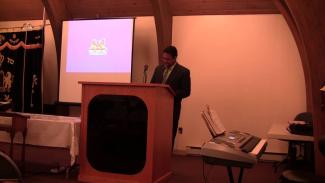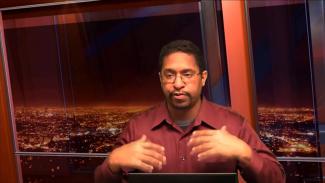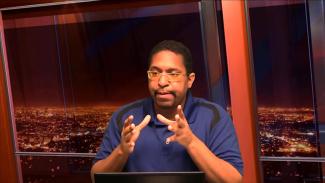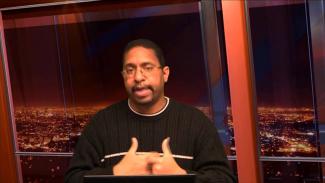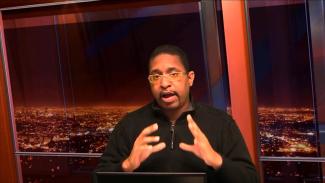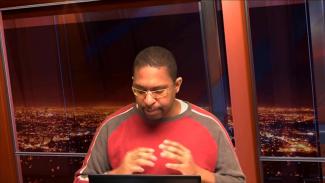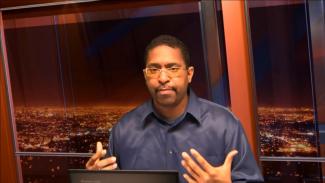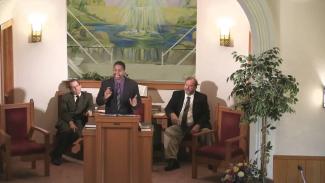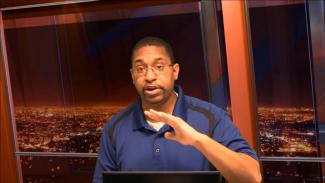How did Paul summarize the gospel? What was his take on the reality of rebellion and the Great Controversy? How did Paul suggest that we fight in this spiritual war? What did he mean when he compared the church to members of a body, materials of a building, or crops to be grown? How did Paul answer challenges that suggested that there was no resurrection of the dead? This week we take a look at Paul's teachings and how he illuminated many of these themes. Paul spoke of Jesus as the 2nd Adam and showed how the consequences of Adam's mistake was reversed through Christ's ministry.
All Video Media
Choose from all Inspirited Network programming or select a topic from the menu.What challenges and obstacles did the Early Church face? How did Jesus redirect his disciples to his true purpose while they still held on to their pre-conceived ideas and biases? What exactly is the good news of the gospel and in what way were Jesus' followers witnesses? How did the Great Controversy play out in the early church? In what ways did Satan attack the church from within and without? What can we learn from the Early Church that could help us with our challenges today?
John Spellman preaches at the Beit Shalom SDA congregation. Sermon is based on Exodus 17: Moses prays for the children of Israel despite their constant murmuring and complaining. God blesses Israel only as Moses continues to pray for them. But what happens when the prophet grows tired? What happens when he loses strength? Today, God has many leaders who need support. How do we support those that need our help? What about families that need to support one another? What happens when they don't? Is there still a need today to lift people up?
How did Jesus' teachings portray the Great Controversy? In what way did Jesus describe the struggle between good and evil? How can we have rest in Jesus? In what ways does He lighten our burdens? With all the challenges we face in life, can this rest Jesus offers truly make a difference? What does the parable of the sower reveal about how people respond to the gospel? How does it portray the struggle between good and evil? What kind of ground best represents you and I? What did Jesus teach about foundations? How can we make Him our rock?
How did Jesus overcome temptation? Why is He the second Adam? What was the purpose of Jesus coming to earth? What is the significance of "Emmanuel" or "God with us". Is it possible to overcome temptation as Jesus did? How can the Bible aid us in the times of our temptations? What parallels exist between the wilderness temptation and events like the Fall and the Exodus from Egypt? How does Jesus' humanity help Him to relate to struggling sinners as our High Priest? This week, as we address many of these issues, we will explore how to be victorious over sins.
What can we learn from the time period of the judges? Why did God raise up these men, women, and children? Why was victory over the army of Sisera given to a woman, Jael, rather than Barak? What can we learn from the story of Gideon about faith? How does the story of Samson show God's willingness to work through people even when they make mistakes? We will also cover the story of Ruth and Samuel. God works through human agencies when they are fully dependent on Him. Yet, even when they go down wrong paths, He turns problematic situations into opportunities.
As we study rebellion and redemption, what impact did sin have on humanity? How did sin impact the children of Adam and Eve as well as the generations to come? What does all this have to do with the Great Controversy? Did God step in to deal with this crisis or did He leave humanity on its own to fend for themselves? What does God's relationship with Abraham teach us about how sure can we be about God's promises? How do the lives of Jacob, Esau, and Joseph show us the growing process God takes us through to accomplish His plans for us?
This week we start a new series on rebellion and redemption. Why is the world as messed up as it is today? Are the corruption, disease, pollution, and problems we observe part of God's design? What went wrong in the Garden of Eden? Is God to blame for Adam and Eve's mistake? Why did the tree of the knowledge of good and evil exist? Was mankind set up to fail? Why was humanity given power to choose? How does all this tie in with the Great Controversy and with our lives today?
As Jeremiah's ministry continues, his experience parallels that of Jesus. He is rejected, his warnings despised, he is falsely accused, and sentenced to death. How does God bring Jeremiah through this experience? How are things similar in our time? Why do people reject warnings? Was Jeremiah's message all about doom and gloom or was there hope in his words? Was the message of repentance unique to Jeremiah? Or, was it uniform among the prophets, apostles, disciples of Jesus, and Jesus Himself? Can a Christian avoid the topic of the judgment?
The Bible uses many symbols in both the Old and New Testament. What can these symbols teach us today? Why did the nation of Judah practice the most grievous sins of the surrounding nations? What symbols were used in the Old Testament? How did Jesus use symbols in His ministry? How are symbols used in the prophetic books of the Bible? This week we'll be focusing on symbols in the book of Jeremiah and how God used those symbols to communicate with His people and warn them.
Jeremiah has a very human response to his pain and suffering resulting from being rejected as he spoke the Word of the Lord. What lessons can we learn about suffering and going through hardship resulting from standing for our faith? Will God's people today have a similar experience? What did Jeremiah learn about his weaknesses and what God does in spite of human weakness? How did Pashur respond to Jeremiah? What was God trying to say to the people of Judah? Is prophecy conditional or always fulfilled once a prophet utters the words?



